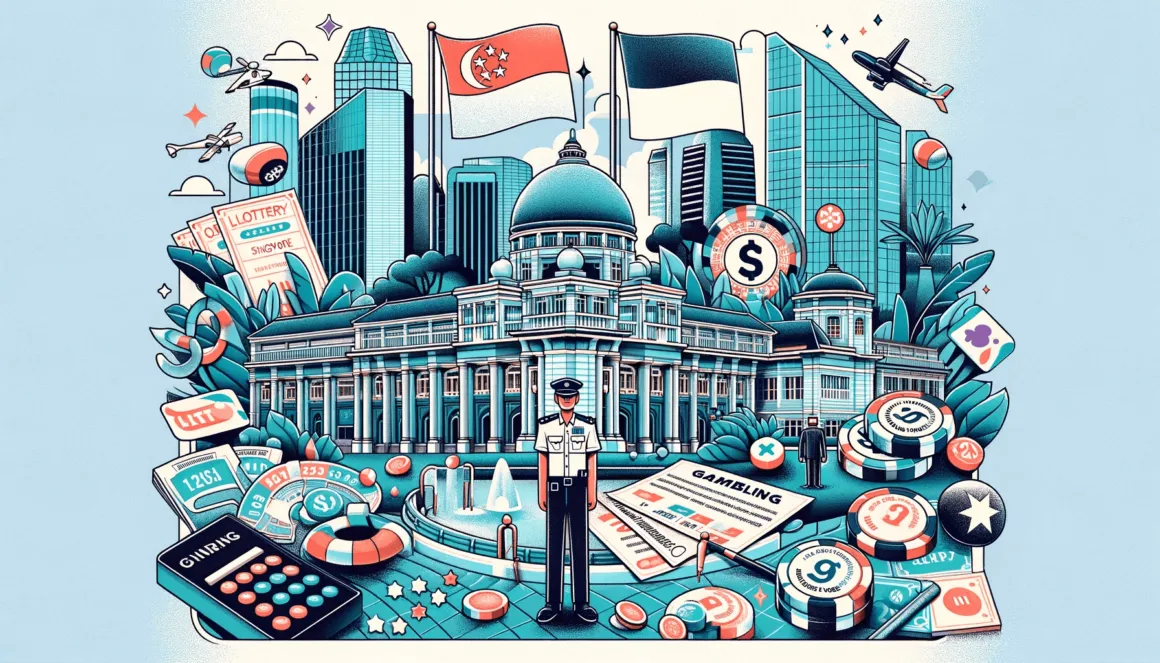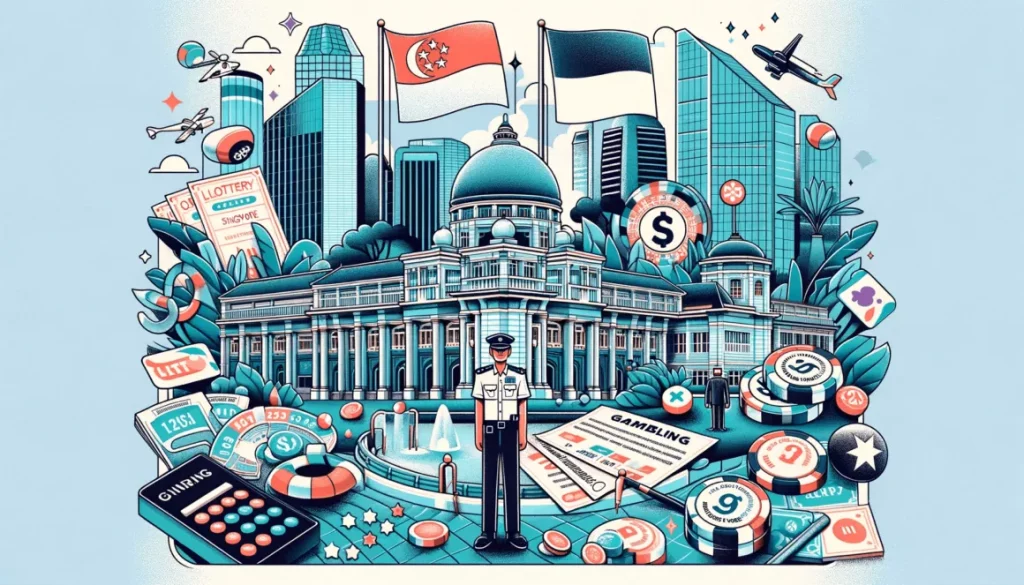Gambling has always been a popular activity, with people indulging in various forms of betting and wagering for centuries. In recent years, the introduction of online gambling has further increased its popularity, making it more accessible to the masses. While some countries have strict laws against gambling, others have legalized and regulated it, making it a significant contributor to their economy.
One such country is Singapore, which has seen a rise in the popularity of gambling in recent years. From casinos and lottery to sports betting and online gambling, Singapore offers a wide variety of options for individuals to indulge in this form of entertainment. In this article, we will take a closer look at the statistics of gambling in Singapore, examining its growth, impact, and future prospects.

The History of Gambling in Singapore
To understand the current state of gambling in Singapore, it is essential to take a look at its history. Gambling has been a part of the country’s culture for many years, with early forms of betting being horse racing and lotteries. In 1823, the Singapore Turf Club was established, marking the beginning of legal gambling in the country. However, the government banned all forms of gambling in 1826 due to moral concerns.
In 1968, the government introduced the Common Gaming Houses Act, which allowed the establishment of a legal lottery known as Singapore Pools. This move proved to be a turning point for the country’s gambling industry, with revenue from the lottery contributing significantly to the country’s economy. In 2005, the government legalized casino gambling, leading to the opening of two integrated resorts, Marina Bay Sands and Resorts World Sentosa, in 2010. These casinos offer a wide range of games such as blackjack, baccarat, and slot machines, attracting both locals and tourists alike.
Another significant development in the country’s gambling industry was the introduction of online gambling in 2016. The Remote Gambling Act allowed Singaporeans to participate in online gambling as long as it was done through approved operators and platforms. This move was a response to the growing popularity of online gambling and aimed to regulate and control its impact on society.
The Growth of Gambling in Singapore

The legalization of casino gambling and the introduction of online gambling have contributed significantly to the growth of the gambling industry in Singapore. According to a report by the Business Research Company, the global gambling market is expected to reach $565.4 billion in 2022, with Asia Pacific being the largest region, accounting for over 32% of the market share.
In Singapore, the total revenue from casinos and lottery has been steadily increasing over the years. In 2019, Marina Bay Sands and Resorts World Sentosa generated a combined revenue of approximately $7.2 billion, a 5.4% increase from the previous year. The lottery, operated by Singapore Pools and Singapore Turf Club, also saw a rise in sales, reaching $8.3 billion in 2019, an increase of 0.2% from the previous year.
Apart from these legal forms of gambling, the rise of online gambling has also played a significant role in the growth of the industry. A study by the National Council on Problem Gambling (NCPG) found that the number of online gamblers in Singapore had increased from 1.2% in 2017 to 2.6% in 2018. The study also revealed that about half of all online gamblers in Singapore are between the ages of 18 and 35, indicating a trend towards young adults participating in this activity.
The Impact of Gambling on Society
While gambling has proven to be a lucrative industry for governments and operators, it also has some negative effects on society. One of the main concerns is problem gambling, which can lead to financial, psychological, and social problems for individuals and their families.
According to the NCPG, the prevalence of problem gambling in Singapore was at 0.7% in 2018, a slight increase from the 0.6% reported in 2017. The study also found that online gambling has a higher rate of problem gambling compared to other forms of gambling, with about 2.9% of all online gamblers being classified as problem gamblers.
To address this issue, the government has implemented various measures such as self-exclusion programs, counseling services, and public education campaigns. These efforts have proven to be effective as the number of people seeking help for gambling addiction has increased over the years.
Apart from problem gambling, another concern is the impact of gambling on low-income individuals and families. A study by the Institute of Policy Studies (IPS) found that those living in rental flats, as well as single-parent households, were more likely to participate in gambling activities than the average Singaporean. This trend is worrying as it could potentially lead to financial difficulties and further exacerbate income inequality in the country.
Furthermore, the rise of online gambling has also raised concerns about its accessibility, especially to vulnerable groups such as minors and individuals with gambling addiction. To address this issue, the government has implemented strict regulations on online gambling, including age verification processes and penalties for operators who do not comply with the rules.
The Future of Gambling in Singapore

As we move towards an increasingly digital world, the future of gambling in Singapore will continue to evolve and adapt. With the growing popularity of online gambling, it is likely that we will see more innovations and advancements in this sector in the coming years. For instance, mobile gambling apps and virtual reality casinos are just some of the emerging trends in the online gambling industry.
The introduction of new technologies also opens up opportunities for responsible gambling. For example, facial recognition technology can be used to identify and exclude individuals who have opted for self-exclusion programs from entering casinos or using online gambling platforms.
Furthermore, the government’s efforts to regulate and control the impact of gambling on society will continue to play a crucial role in shaping the future of the industry. The implementation of measures such as age and identity verification, self-exclusion programs, and public education campaigns will help to mitigate the negative effects of gambling and promote responsible gambling.
Conclusion
In conclusion, the statistics show that gambling in Singapore has experienced significant growth in recent years, thanks to the legalization of casinos and the introduction of online gambling. However, this growth also raises concerns about its impact on society, particularly with regards to problem gambling and its accessibility to vulnerable groups.
Looking towards the future, it is essential to strike a balance between promoting economic growth through the gambling industry and addressing the concerns surrounding it. With proper regulation and control, gambling can continue to be a source of entertainment for individuals while contributing to the country’s economy. However, it is crucial to prioritize responsible gambling and ensure that measures are in place to protect vulnerable individuals and families.






